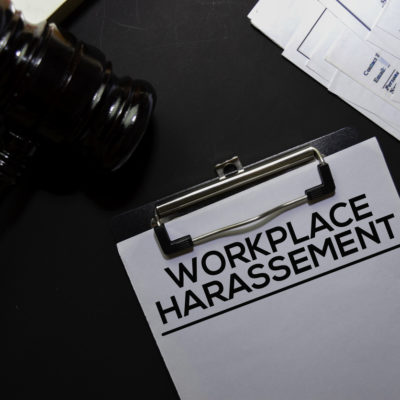Australia was once a global leader in tackling sexual harassment. In 1984, the Australian Government introduced the Sex Discrimination Act 1984 (the SD Act), which specifically prohibited sexual harassment at work and established the role of Australia’s Sex Discrimination Commissioner.
However, despite these protections being in place for decades, a survey conducted by the Australian Human Rights Commission in 2018 showed that these protections have not been adequate to prevent such behaviours occurring, with sexual harassment in Australian workplaces widespread, and the survey finding that one in three people (two in five women and one in four men) had experienced sexual harassment at work in the previous five years.
Respect@Work
Following this survey, Kate Jenkins, Australia’s current Sex Discrimination Commissioner conducted an inquiry and, on 5 March 2020, released the Respect@Work Sexual Harassment National Inquiry Report (2020) (Respect@Work Report) which concluded that the current legal and regulatory system is no longer fit for purpose.
The Respect@Work Report made 55 recommendations to comprehensively reform how Australia responds to and prevents sexual harassment.
On 15 March 2021, as part of the March 4 Justice, a petition of more than 90,000 signatures was delivered to federal politicians with a key demand for the Federal Government to fully implement the 55 recommendations in the Respect@Work Report.
On 8 April 2021, the Morrison Government published ‘A Roadmap for Respect: Preventing and Addressing Sexual Harassment in Australian Workplaces’ (Roadmap) which aims to compliment the National Plan to Reduce Violence Against Women and their Children and outlines the Government has agreed to or noted the 55 recommendations from the Respect@Work Report “wholly, in part or in principle”.
Key Recommendations
Some of the key recommendations from the Respect@Work Report from an employment law perspective that will be adopted include:
- Extending the time limit for making a sexual harassment complaint to the Australian Human Rights Commission from six months to 24 months.
- Clarifying the scope of the SD Act to hold parliamentarians and judges accountable for sexual harassment complaints (as well as removing the current exemption of state public servants).
- Developing targeted amendments to the SD Act to make the system for addressing sexual harassment in the workplace easier for employers and workers to understand and navigate. This will also include introducing changes to ensure the SD Act better aligns with model work health and safety laws.
- Amending the Fair Work Act 2009 (Cth) (FW Act) to clarify that sexual harassment can be a valid reason for dismissal when determining whether a dismissal was harsh, unjust or unreasonable.
- Amending the Fair Work Regulations 2009 (Cth) (FW Regulations) definition of serious misconduct to include sexual harassment, clarifying that sexual harassment is a form of serious misconduct for which employees can be terminated summarily/without notice.
- Clarifying that a ‘stop bullying order’ in the FW Act is available in the context of sexual harassment.
It is worth noting that the law as it currently stands recognises that sexual harassment may provide a valid reason for dismissal and in many cases justifies summary dismissal. However, the amendments to the Fair Work Act and Regulations will likely provide employers greater confidence in proceeding with dismissal.
Given the Roadmap has now been confirmed, we expect to see legislation introduced to address the adopted recommendations from the Respect@Work Report in the near future. In addition, Prime Minister Scott Morrison has announced that all state and territories will make their own response to the Respect@Work Report by the end of June 2021, which could also result in changes to state and territory legislation.
In parallel, on 19 April 2021, Victorian State Attorney General Jaclyn Symes announced that the Victorian Government will contribute to broader efforts to prevent and tackle sexual harassment in all workplaces, including through the recently established ministerial taskforce on the issue. Victorian OHS laws are expected to be amended soon to explicitly prohibit sexual harassment with plans to require employers to report sexual harassment incidents in Victoria to WorkSafe, or risk fines of up to $200,000 for failing to do so.



